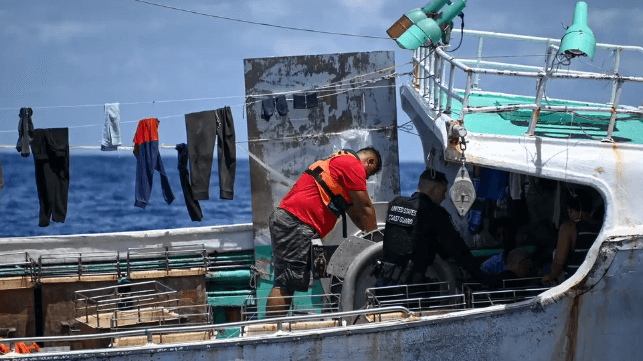Samoa Grants USCG Expanded Enforcement Powers in its EEZ

U.S diplomacy in the South Pacific region has receive a major boost after Samoa expanded the powers of U.S Coast Guard (USCG) personnel within its exclusive economic zone. It is the latest in a series of agreements in the Pacific Islands that empower American officials to enforce partner nations’ maritime laws.
On Friday, the government of Samoa and the U.S signed an update to their existing 2012 maritime law enforcement agreement, commonly known as the Shiprider Agreement.
The update grants the U.S Coast Guard an enhanced operational reach within Samoan waters, especially in dealing with illegal fishing activities. In this case, Samoa could request the U.S Coast Guard to inspect vessels and enforce its coastal state regulations without a Samoan officer (shiprider) present. However, the new agreement does not replace the joint patrols conducted with Samoan shipriders.
“In partnership with Samoa, the United States stands committed to safeguarding and ensuring security of Samoa’s exclusive economic zone. This is by preserving its marine resources and environment,” said Noriko Horiuchi, Charge d’Affaires, U.S Embassy Apia.
The new agreement comes days after the Coast Guard cutter Harriet Lane completed a three-months long deployment to the Pacific Island countries. During the inaugural patrol to the region, the 270- foot cutter visited pacific countries including Samoa, Fiji, Vanuatu, Australia, Papua New Guinea and Nauru.
The vessel’s commander, Nicole Tesoniero, said the patrol carried out 28 vessel boardings under shiprider agreements with Pacific Island countries. In Vanuatu’s EEZ, Six Chinese fishing boats were allegedly found to be violating the country’s fisheries law, with the infringements including failing to record the fish caught in the log books. During the inspection, Vanuatu fishery department officers and the police were onboard the USCG cutter.
Other states which have allowed the USCG to board vessels within their waters include Micronesia, Papua New Guinea and Palau.
The USCG has said it will use medium endurance cutters like the Harriet Lane to increase its presence throughout the Indo-Pacific and Oceania. Such ships are especially suited for longer-range six to eight week joint patrols, taking pressure off shorter range Hawaii-based cutters, which are more suited to service closer to home port.
With vast EEZs and limited capacity for patrols, Pacific Island nations rely on help from Australia, New Zealand and the U.S to police their waters. But China has also expanded its diplomatic efforts in the region, sparking concerns of rising Chinese influence in the South and Central Pacific.
No comments:
Post a Comment